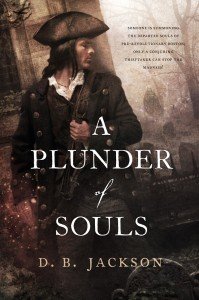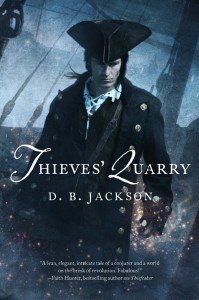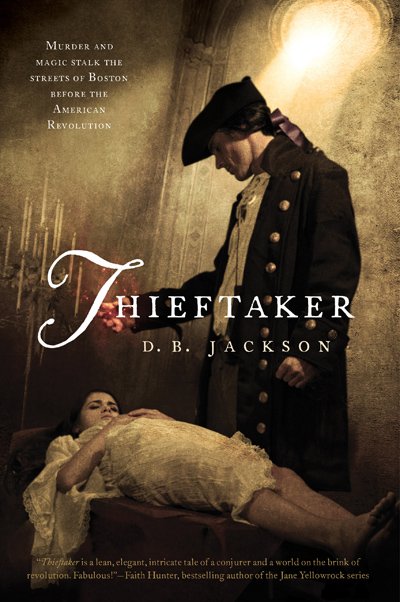I started online on GEnie many years ago. The GEnie bulletin board gave me a chance to meet with my friends and get to know new people (many of whom have since become my friends) online when otherwise I would never have been able to regularly interact with so many people in my writing/reading community.
The online world has changed considerably since that time. Now I’m on both Facebook and Twitter, as well as my live journal and wordpress blog (two platforms, same content). Facebook and Twitter especially have allowed me to make contact with writers and readers around the world, and I feel fortunate to have this opportunity to open up my own perspective of the greater international science fiction and fantasy world, one that is easy (here in the USA) to overlook, not least because so little fiction that isn’t originally published in English gets translated and made available in this country.
So I’m so very pleased to be able to have a guest post today from Filipina writer Rochita Loenen-Ruiz. You can also read the post at The Future Fire and comment there if you wish.
Decolonizing as an SF Writer
By Rochita Loenen-Ruiz
As I write this, I am thinking of a young writer somewhere in the world who comes from a country just like mine. I write reflecting on the process of decolonization that I am going through as I consider history. This look back may be painful and I may have to face unhappy truths, but still it is important. I need to understand the source of the pain, to accept it, embrace it and find healing so I can reclaim what is mine and become the writer that I want to be.
#
Towards the end of the Marcos regime in 1986, Filipinos marched through the streets protesting not only against the dictator, but also against the continued presence on our shores of the American bases and the perpetuation of American influence on Filipino politics and economics.
While history tells us that we were granted independence in 1912, we know for a fact that the Americans never truly intended to surrender their foothold in our country. Their presence in the Philippines was guaranteed by the acquisition of a lease that granted them permission to establish and maintain Military bases in the Philippines.
In 1991, this lease expired and as the newly installed Philippine senate refused to grant an extension of this lease, America was forced to vacate the bases.
Ostensibly the Americans have left, but they haven’t really left us and what the American occupation has left behind is a great wound on the cultural soul of the Philippines.
Mark Twain, in his essay, To the Person Sitting in Darkness, speaks out against the Imperialism of the United States and in particular against the actions taken by the Americans in subjugating the Philippines and appropriating the victory of the Filipinos against the Spanish colonizers.
Mark Twain writes in his essay about the mindset of America in those days: We have got the Archipelago, and we shall never give it up.
When I read this essay, I can feel the bewilderment of the patriots who had fought
and won the war against the Spanish, and I feel utter sorrow in knowing that our supposed allies painted us as being uncivilized and not fit to rule our own country. I also feel indignation on behalf of the soldiers who fought against the Spanish and who realized that they were facing another, more insidious enemy. The thing is, where Spain very clearly presented themselves as conquering overlords, America presented itself as a friend. It was an excellent strategy which confused us completely because what they did to the Filipino was a betrayal of that word “friend”.
Perhaps this explains why there is a keen edge to the anger we feel when we look at this history. We love and yet we cannot love because on the one hand, there is the face of friendship and the knowledge that the Americans were our allies. On the other hand we see the face of the trusted friend who betrayed us. We realize that we were never considered equals but in the eyes of our white allies, we were savages to be treated as children and to be condescended to as “the little brown brother”.
I quote history because as an SF writer who comes from a nation steeped in colonialism, this history is relevant as I seek to reclaim indigenous narratives and to break the impositions of colonialism on my culture.
In his book, “Oral Traditions of the Ifugao”, Manuel Dulawan writes of the colonization of the Ifugao and how the Americans employed public education as a means to neutralize and to Americanize the people. This move was so effective that subsequent governments adapted the principles set down by the American education system without realizing just how much damage this had done and was doing to the existing indigenous culture.
Dulawan writes: They have been brainwashed in the schools and in the churches and made to believe that their culture is backward and not worth keeping or learning. As a result, their sense of cultural values is disoriented.
He describes the effects of this cultural brainwashing as being traumatic, sad and painful and writes of how many of those who inherited or adopted the Christian religion assume the conditioned belief that anything of Ifugao cultural origin is either no good or inferior.
In Ifugao culture, the passing on of traditions and rites are done by native priests who are called Mumbaki. They are assisted in this by the elder tribeswomen who are also trained in the oral tradition. In the past, young girls would spend time with the elder women who taught them the traditions, the chants and the songs. Young boys were sent to spend time with the Mumbaki who passed on to the next generation the oral literature, the rituals of the tribe and the practices which were inherited from the forefathers.
During the American occupation, the passing on of the oral tradition was suppressed as the native priests and their rituals were demonized not only by the white colonizer but also by the white missionaries who followed in their wake. This meant that the true traditions and the original culture were slowly overlaid with the glaze of white culture and white belief.
Add all this up and it is no wonder that the psyche and the culture of the Filipino is so scarred and wounded to the point where we see the white and the west as being superior to us in all things.
Reading the history of conquest and colonization is a traumatic experience for the colonized. The Philippines went through not one, but two colonizers. I wonder how many colonizers other countries had to endure.
From reading these histories, it becomes clear to me that the erasure and subjugation of existing indigenous narratives were prioritized as these were viewed as being rival to the colonizing power.
Before the coming of the Americans, the Philippines had already endured four hundred years of colonization under the Spanish regime (1521-1898). It was a colonization that started with the suppresion and the eradication of many of our indigenous culturebearers. Where the American colonizers sought to erase the indigenous culture through the use of education, the Spanish brought with them Spanish friars with the intention of subjugating and exerting influence on the native Filipinos through the use of religion.
Reading this part of my country’s history, I see how the image of the strong indigenous Filipino woman was slowly and surely erased to be replaced by the idealized and hispanized version of what a Filipina should be. The liberated women of our country were shamed and called lewd and bad and this Christianization inflicted a sense of shame and lesser worth in us.
In her essay “Silencing the Babaylan”, writer Gemma Araneta Cruz writes of the Babaylan and of the Spanish response to the presence of the Babaylan: Fray Alzina (the Spanish priest) and missionaries like him saw that the babaylan was a formidable obstacle to Christianization who had to be discredited, if not destroyed and forever silenced.
Who are these Babaylan and what role do these women play in the cultural life of the Philippines?
When these Spanish friars came to the villages, they noticed the presence of strong women of influence. These strong women were the Babaylan who not only had the power to heal, they were the authority on mythological and cultural heritage, they were the harbingers of ritual and they knew astronomy.
It was during these encounters that the Friars saw how the Babaylan were a major force and a possible obstacle to their goal of hispanizing and subjugating the archipelago. It was then that the decision was formed to disempower the Babaylan.
In “Betraying the Babaylan,” Araneta Cruz describes the technique of divide and conquer which the Spanish employed to disempower the Babaylan and effectively erase them. The first thing that the Spanish did was to alienate the effeminate Babaylan from the women priestesses. They also gained the support of the tribal elite in their cause to wipe out the Babaylan through the use of bribery and promises of power. With the male Babaylan and the elite on their side, the Spanish friars went on to accuse the Babaylan of being of the devil and of practicing witchcraft.
While I narrate events that are specific to the Philippines, I find myself wondering if such events were also mirrored in countries that were colonized by foreign powers. How pervasive is that other culture? How much has it stolen from or killed of the original culture?
When I look at my country, I see how much these things have harmed our psyche and I also see the resilience of our culturebearers who employed whatever means was at their disposal to preserve our culture. Even so, the wounds have spread deep and there are certain things that demonstrate to us how deeply rooted colonialism is.
Even to this day, we see young women buying whitening creams because white is perceived as the ideal color. I long to tell my fellow Filipinos, there is nothing more beautiful than kayumanggi (brown).
At Eastercon, a good friend asked me who I wanted to read my work. It was a question that was unexpected and perhaps because I didn’t expect it, I gave the answer that came quickest to me. I want Filipinos to read my work and in particular, I want the people from Ifugao to read my work. Of course, I amended, I want everyone to read my work, but when I write, I am always thinking of the Philippines.
When I heard of the We See A Different Frontiers project, I was immediately attracted to the premise of an anthology that seeks to bring attention to stories coming from people and places who have endured colonization.
As a Filipino writer who engages Science Fiction, I see myself in conversation with the SF that comes from the West. A great part of existing SF narrative is that of the colonizer, but my narrative is one wherein I strive to reconcile my decolonization with the truth of my country’s history, the reality of where I am now and my vision of where I want to be.
I may transgress against the rules of SF because there are many things that I do not know about Science Fiction. I did not grow up surrounded and soaked in its language as Science Fiction fans and writers from the West. But I do know what SF looks like when seen with the eyes of the decolonized. It is a different SF, but it is still Science Fiction. As my Clarion West instructor, John Kessel said: Science Fiction is when I point to it and say that’s science fiction.
It is easy to be intimidated, and it is a struggle not to be so. And that’s why I think it is important for a writer of color to see other writers and fans of color in the field of Science Fiction.
In the course of this journey, I have been told that I need to learn English better. That I can’t possibly grasp the nuances of the English language the way a native English speaker does and that I will never be published as an SF writer.
And then, there are people who say that because I write in English, my narrative is contaminated and no longer true to the culture I come from.
The people saying those things may believe those things to be true, but I persist because I hear the voices of those who have admonished me from the moment I engaged this genre.
I hear the voice of my elder sister telling me: Don’t be stupid. Is this your dream or what? Are you going to let yourself be silenced by those words?
There is my precious grandaunt who told me: there are no limits. If this is what makes you feel passionate, then you must keep on writing it.
And there are dear friends like Aliette de Bodard who, when I was thinking of giving up, asked me: So, are you going to wait until someone else appropriates your culture?
And so I go and commit SF yet again.
#
*This essay was inspired by a twitter exchange between Djibril al-Ayad, Kate Elliott, Requires Hate, Aliette de Bodard and I.
#
Rochita was the first Filipina writer to be accepted into the Clarion West Writer’s Workshop. She attended the workshop in 2009 as the recipient of the Octavia Butler Scholarship. Her short fiction has been published in The Philippines as well as outside of The Philippines. She has a livejournal at http://rcloenen-ruiz.livejournal.com







